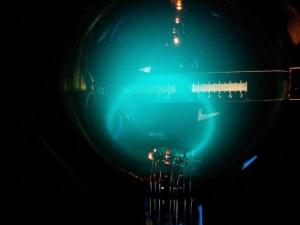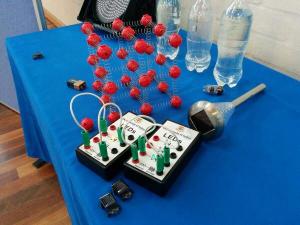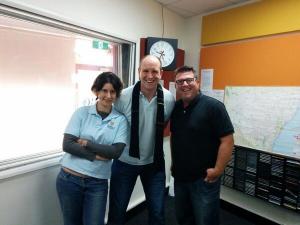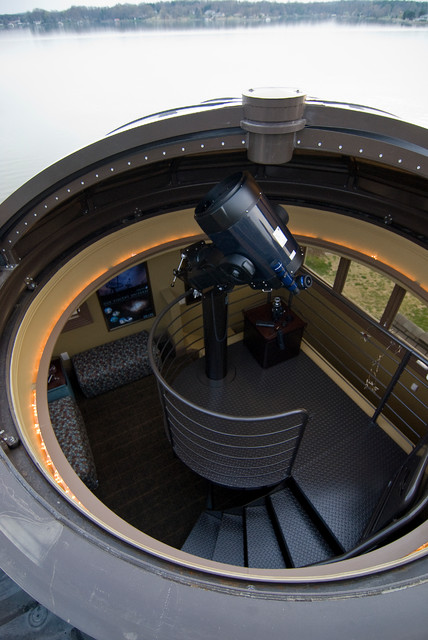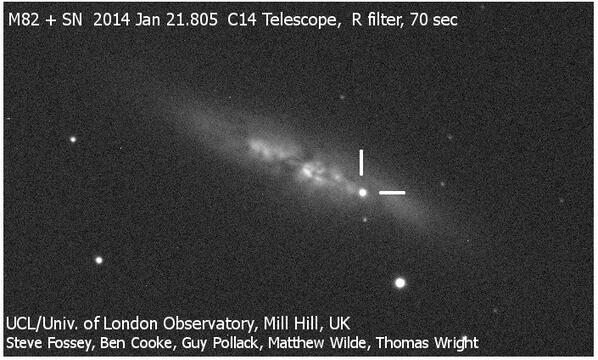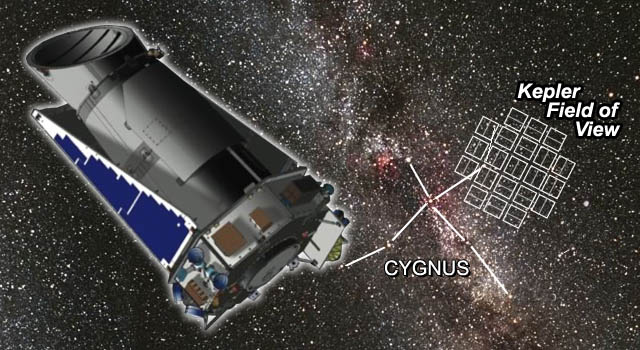I'll start this post out as a bit of a response to the article titled "
Facts won't beat the climate deniers - Using their tactics will," posted in
The Conversation on March 13, 2014 by Dr Rod Lamberts from the Centre for Public Awareness of Science (my old stomping ground!), and we'll see where it takes me.
I like the article, it was a good conversation starter for me. I like Dr Lamberts, he speaks his mind and it is a good mind, I hope he keeps speaking it! and I hope this response is taken is it was intended, as a continuation of the conversation.
First, a quick summary of the article from me.
The facts we as scientists are using to combat the climate deniers are not getting through as we would accept them. We are presented with facts and we get it, they are presented with the same facts and they don't (I'm paraphrasing). Added to that, tactics of opinions and anti-science
are getting through. Instead of more facts (the equivalent of talking louder in a foreign country to get people to understand you!), we should be getting in peoples faces with our opinions and point of view. Action, not facts.
This is pretty depressing quote from the article that hit me pretty hard
We can decry climate deniers for their unfair, lowbrow tactics, but their tactics are getting them exactly what they want. Ours are not.
My response.
I think Dr Lamberts has some good points, but I'd like to keep my optimists hat on for little bit longer. I agree with the point about action, Yes, action is what is needed, but it should be action based on facts. I hope this is what Dr Lamberts meant. I don't think we should be forgetting the facts. In fact contrary to what Dr Lamberts said, we should most certainly continue to use facts to inform our arguments. We should of course be loud and proud, we should be getting in peoples faces, but all based on fact. I'll refrain from pulling apart this quote "The fact is that the time for fact-based argument is over" in the same way the Tim Flannery's quote was pulled apart in the article.
 |
I like this quote. I've used it
before, cos it's a good'un.
Credit: dashburst.com |
The fact is that facts are true (see Neil deGrasse Tyson quote), Opinions can be true too, but are not always. To ignore this in any argument is silly. Our facts are based on science, knowledge and the scientific process, which has worked pretty well for a few hundred years. I think instead of ignoring facts, we should not only rely on them more heavily, cos you can't deny facts, we should also lean on the process which we use to get those facts.
Dr Lamberts says in his article "Forget the Moncktonites, disregard the Boltists, and snub the Abbottsians. Ignore them, step around them, or walk over them." Again, I agree, as their opinions do not aid in the discussion, but to continue to say the we should use their tactics, I disagree with. (granted it is of course hard to ignore the people who have been elected to make the laws, but it isn't impossible!)
I'm a big advocate of aiming above the lowest common denominator, not at it or below it. Using
their tactics is moving to their level that is not based on facts, and arguing without facts is worse, in my opinion, than arguing with facts. In a way, we could be mindfully ignorant of the things that some people just don't know. We could assume that there is a level of knowledge out there about climate change, this would effectively eliminate that discussion. Sure we'll lose some supporters along the way, but we'd also eliminate the need to argue silly points that we have argued many times. I guess this is the same as what Dr Lamberts is suggesting. Forget, disregard and snub!
I think you'll find that our tactics are working. There are of course set backs, but this will always happen. Look at that spectacular
video from the Year 9 Newtown High students that asked PM Abbott questions the other day as one example. Those are the people that in a few years will be representing us. We're in good hands if you ask me. These students are not unique either, there are many more with the same tenacity as these guys. There are even political parties that call for evidence based policy, and a high focus on STEM etc. The
Future Party and The Greens to mention a couple. I honestly don't think we are losing the battle, so we should therefore not change our tactics.
Sure, let's get loud, and active, but also, let's not forget what we are loud about. We are here to solve a problem that science can solve, and science is based on facts, so lets use those facts that in the long run, will always prevail over opinions, in our argument. Instead of us using their tactics, let's force them to use ours, then we'll really see whose ahead in the debate!
Action with facts. If only the word
Faction didn't already mean something else, it would be perfect here!
 Last week I was the curator of the rotation twitter account, @EduTweetOz. Here's more about them
Last week I was the curator of the rotation twitter account, @EduTweetOz. Here's more about them




